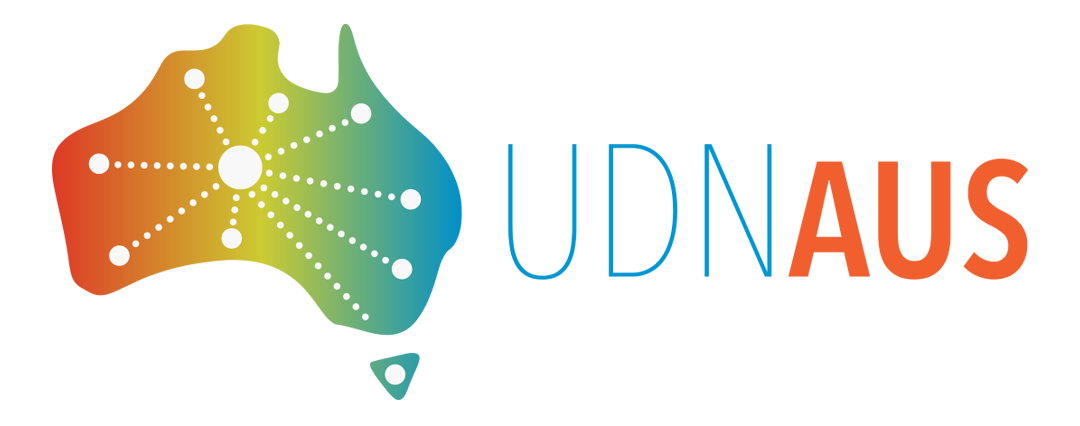FAQs
-
Recruitment for UDN-Aus has now closed. To take part in the UDN-Aus study, undiagnosed individuals needed to be referred by their Clinical Geneticist at a participating clinical genetics service. This study has recruiting services in most states- these can be found here.. Individuals who met the minimum criteria were reviewed by the study team for consideration of eligibility. At this stage, there is not an opportunity for non-genetics specialists to refer to the study, nor for people to refer themselves. Specialists, General Practitioners, and individuals alike should discuss any families enrolled in the project with their site’s Clinical Geneticist.
-
In order to be considered for UDN-Aus, an individual is required to have been reviewed by a Clinical Geneticist and all routinely available clinical genetic testing (including genomic testing) needs to have occurred. If you or your doctor suspect you may have an undiagnosed genetic condition, and you have not seen a Genetics Service, ask your general practitioner to refer you to your local service. A list of clinical genetics services in Australasia can be found here. Participating UDN-Aus referring sites are here
-
The study team consider a number of factors when determining who is eligible for this study. These include if you or your child have previously had a genetic or genomic test, the clinical presentation of the health condition in your family, and other clinical testing or imaging you or your child may have had. The study team also consider select demographic data to support equity of access principles aligning with the National Strategic Action Plan for Rare Diseases.
Full criteria for eligibility is available on the For Health Professionals page. This criteria is aimed at Clinical Geneticists and contains technical/jargon language. If you are unsure if you meet this criteria or would like any aspect clarified, contact your Genetics Service (or see the above FAQ “What if I don’t have a Clinical Geneticist?”.
-
If you or your child are ineligible for this study, the UDN-Aus team will inform your Clinical Geneticist, who will be responsible for contacting you to inform you. If you or your child are ineligible, this does not mean that you or your child do not have a genetic condition. Rather, that the national UDN-Aus team believes the likelihood of UDN-Aus finding an answer for you to be low or that there are other investigations or projects the UDN-Aus team think you would benefit from more. The UDN-Aus team will inform your Clinical Geneticist of these suggested investigations and projects and your Clinical Geneticist can investigate this further to help find the cause of the health condition in your family.
-
A member of the study team will contact you with further information regarding the project and be available to answer any questions or concerns you may have. If you consent to participation, your genetic data will be sent to the study team for reanalysis. In some instances, new samples may be required.
UDN-Aus hopes to find diagnoses for as many of our participants as possible. Similar previous studies of undiagnosed individuals have increased that rate of diagnosis from 50% of individuals to 70%. Some individuals unfortunately remain undiagnosed. It is likely a diagnosis will not be found for all participants in this study. Whether a diagnosis is found, or not, your outcome will be communicated to you through your referring Clinical Geneticist. If you are unsure who your referring Clinical Geneticist is, you can contact UDN-Aus here to enquire. Your local Genetics Service will be available to support you through receiving this information.
-
All data collected as part of this research study will be stored in secure, controlled-access databases that meet national and international data standards. Stringent security measures will help prevent unauthorised access to or misuse of the data.
As part of this research study, your sample(s) will be stored indefinitely in case further research may be needed to help find a diagnosis and/or to better understand your health condition. Some samples may be used by the laboratory or research study as a control sample. You can choose to have your samples removed from storage at any time.
Where further investigations are indicated beyond genomic reanalysis, tissue samples or skin cells may be used for functional studies and depending on what functional studies need to be performed, we may send this material to expert research collaborators.
If we do this, your or your child’s samples will be labelled with their code number only. It will not be possible for the testing laboratory to identify your child. It is important to note that any samples sent overseas are not protected by Australian laws and regulations.
This information will be provided to you by a member of the study team, while discussing consent to participate.
-
Your local Genetics Service has trained clinicians, including Clinical Geneticists and Genetic Counsellors, from whom individuals and families can and should seek support. If you are not already engaged with a Genetics Service, you can find a list of clinical Genetics Services in Australasia here.
A number of support organisations are also available for people with rare genetics diseases and their families. A person who has not received a clear diagnosis should still receive help. For more information on rare diseases and support organisations, consider reaching out to Rare Voices Australia and SWAN (Syndromes Without A Name)
